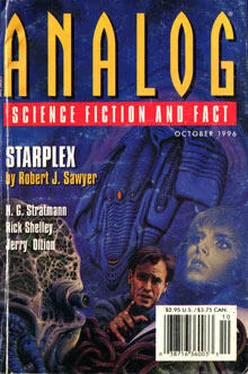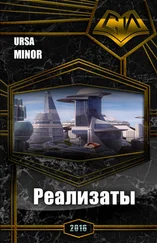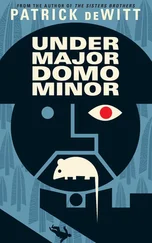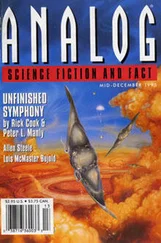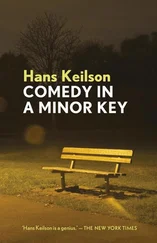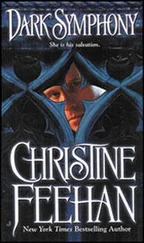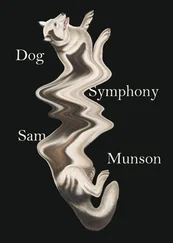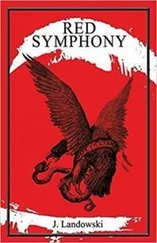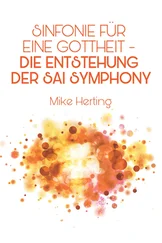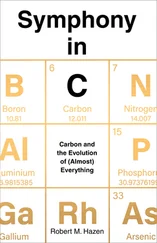H. Stratmann - Symphony in a Minor Key
Здесь есть возможность читать онлайн «H. Stratmann - Symphony in a Minor Key» весь текст электронной книги совершенно бесплатно (целиком полную версию без сокращений). В некоторых случаях можно слушать аудио, скачать через торрент в формате fb2 и присутствует краткое содержание. Год выпуска: 1996, Издательство: Dell Magazines, Жанр: Альтернативная история, на английском языке. Описание произведения, (предисловие) а так же отзывы посетителей доступны на портале библиотеки ЛибКат.
- Название:Symphony in a Minor Key
- Автор:
- Издательство:Dell Magazines
- Жанр:
- Год:1996
- ISBN:нет данных
- Рейтинг книги:5 / 5. Голосов: 1
-
Избранное:Добавить в избранное
- Отзывы:
-
Ваша оценка:
- 100
- 1
- 2
- 3
- 4
- 5
Symphony in a Minor Key: краткое содержание, описание и аннотация
Предлагаем к чтению аннотацию, описание, краткое содержание или предисловие (зависит от того, что написал сам автор книги «Symphony in a Minor Key»). Если вы не нашли необходимую информацию о книге — напишите в комментариях, мы постараемся отыскать её.
Symphony in a Minor Key — читать онлайн бесплатно полную книгу (весь текст) целиком
Ниже представлен текст книги, разбитый по страницам. Система сохранения места последней прочитанной страницы, позволяет с удобством читать онлайн бесплатно книгу «Symphony in a Minor Key», без необходимости каждый раз заново искать на чём Вы остановились. Поставьте закладку, и сможете в любой момент перейти на страницу, на которой закончили чтение.
Интервал:
Закладка:
And then—the fourth and last movement, initially marked Moderate. It opened with the reappearance of the original gentle C major theme from the beginning of the symphony, played this time in A minor. The higher strings and woodwinds played it softly, tentatively. Just as it swelled into a tragic sigh a harsh new theme played fortissimo by the trombones and lower strings tried to overwhelm it. ( “That new theme,” Robbins whispered, “is a verbatim quote of music Beethoven’s old teacher, Haydn, wrote to honor the emperor of his native Austria.”) Despite this onslaught by the second subject, the primary theme returned again and again, each time more forcefully, until it and the Emperor’s Hymn seemed locked in a titanic struggle full of clashing dissonances. Then, after a sudden and dazzling modulation to its original key of C major, with trumpets blaring and timpani thundering the primary theme overwhelmed the “imperial” one, shattering it into scattered notes and crushing it out of existence. Its true power and strength finally revealed, the full orchestra took up the melody in a coda of orgiastic celebration and joy that made the ending of Beethoven’s preceding symphony seem tame and restrained by comparison. Finally, amid martial fanfares of barbaric intensity by the brass and percussion, the strings and woodwinds played the victorious C major theme in a massive contrapuntal tour de force that brought the symphony to a triumphant close.
They sat together in silence for a long time, the music echoing in their ears, and hearts.
Finally Antonia spoke. “You’re right. It was worth it.”
“Actually,” Robbins said, “Beethoven started a new symphony, in C minor, in 1826. But it never got beyond some sketches. Then, in 1831, he started this work, and finished it early in 1834. He wrote in his diary he’d been inspired to write it by some recent events, like the Poles rising up and trying to free their country from Russian rule. And especially by a gift his nephew Karl gave him on his sixtieth birthday—a German translation of Shelley’s Prometheus Unbound. He said the music depicts the triumphant struggle of the human spirit and Life against tyranny and Death—the ultimate victory of freedom over oppression. Like the Fifth Symphony, or the Leonore Overture No. 3, only more so.
“Interestingly enough, a few years after it was first performed, the primary theme from the fourth movement, the one that closes the symphony so dramatically, was used as the basis for a very popular patriotic song. Just about every music shop I’ve gone into on TCE from 1837 on had copies of it for sale. The last time I went to Vienna, in 1847, a crowd was even singing it at some kind of street rally.”
The lyrics were by an obscure Hanoverian poet. In the original German, they were hardly great poetry. Lytton had written a version in English for him which was no better. Like the first verse—“Arise, ye German sons, unite! / No foe can stand before thy might! / The future now belongs to thee, / In union lies thy destiny!”
“It’s like the way new words were written about the same time to Haydn’s Kaiserhymne too, praising Germany instead of the emperor of Austria. Deutchland über alles, which became the German national anthem.”
“Did Beethoven get to hear the symphony before he died?”
“Well, he could never have ‘heard’ it. Towards the end of his life he was almost completely deaf. Remember the story, that when he conducted the first performance of the Ninth Symphony, someone had to turn him around to see the audience applauding? But if you mean, did he ever attend a performance—no. He died just before a set of concerts was going to start. It was first played a week after his funeral.”
He smiled at the bust of Beethoven on the piano. The composer scowled angrily back at him.
Robbins frowned disappointedly. I thought you d like hearing your symphony!
“What exactly did he die of, Howard?”
He blinked. “From injuries suffered in a tragic street accident.” Run over by a runaway wagon carrying offal. Never heard it coming. TCE had lost the romanticized story of the composer leaping from his deathbed to shake his fist in defiance at the lightning-filled sky. But, he believed, it had gained far more.
Antonia looked dreamily ahead, the music still playing within her. “When are you going back?”
Tentatively, he draped his arm over her shoulder. “Tomorrow morning. We’re right on schedule with our survey, up to 1847. Velikovsky says there were major political disturbances in Vienna in 1848 and 1849, so he told me to ‘jump ahead’ to 1852, when things should be safe.”
She replied, “So you’re free for the night.” Antonia’s eyes gazed deeply into his, a shy but gently inquisitive smile on her lips. He had last seen that look in her eyes far too long ago, and knew she wasn’t planning to go back to her own apartment tonight.
Much later, with Antonia lying asleep in his arms, Robbins gazed contentedly up at the ceiling of his bedroom. Memories of the music, of Antonia’s body moving rhythmically against his, wafted through his thoughts like a slowly-played fugue. It was moments like this that made Life worth living. Now, even if he were to die tomorrow, he would die happy.
But as he drifted off to sleep, memories he’d suppressed for the past ten days seeped back into his mind. Of Everett saying, “No, there was nothing you could have done to save her.” Of Harrison, Ertmann’s mentor, reassuring him, “No, it wasn’t your fault. She did it to herself.” Maybe they were sincere, maybe they were even right. But as hard as he tried, he couldn’t rationalize it, or forgive himself. So young, so beautiful. . . . He’d wanted to hug her, comfort her—not kill her! Remembering those things, the exuberance he’d felt from listening to the Tenth Symphony, from making love with Antonia, faded and died.
His semi-conscious mind tried to block those memories by replacing them with music. But the melodies it played were from tragic symphonies. Unlike those of Beethoven, some symphonies in a minor key, like Tchaikovsky’s B minor or Haydn’s E minor, did not finish in a bright, triumphant major key, but maintained the darker minor tonality and a mood of Sturm und Drang tragedy and despair to the very end. Sometimes, in music as in the real world, Death did defeat life.
As Antonia pressed warmly against him, sleep finally claimed him too. But he slept poorly. All through the night more music haunted his dreams. Motifs from Schumann’s overture to Manfred, especially the one representing Astarte. And the second movement of Schubert’s string quartet in D minor. The one subtitled, “Death and the Maiden.”
Robbins frantically pounded the sides of the crater with his fists. There had to be something he could do to help her! The Cossack’s pants were around his ankles now, his bare buttocks quivering as he laughed, relishing the woman’s terror—in no hurry to turn the horror of anticipation into the greater one of reality. He raised himself higher over the rim of the crater, his eyes desperately scanning the ground for a rock, a stick, anything he could use to fight them, even if he died trying!
And then he saw it—a flash of metal against the waist of the fat dead man lying nearby. Tucked into his belt.
A pistol.
Suddenly he heard music again in his mind. The whole Tenth Symphony, compressed into an almost instantaneous burst of sound and power. The dramatic battle of the human spirit against evil and Death, always fighting back, never giving up no matter how much pain and suffering it had to endure, until finally winning its ultimate victory!
In an instant, like a Titan unchained, he raised himself up from the ground, ran toward the dead man, pulled the gun from his belt, and sprinted towards the group ahead. The tiny bit of his mind that remained rational tried to tell him that he’d never fired a gun, that he didn’t even how many bullets it had, but he ignored it. He screamed in Russian, “Stop!”
Читать дальшеИнтервал:
Закладка:
Похожие книги на «Symphony in a Minor Key»
Представляем Вашему вниманию похожие книги на «Symphony in a Minor Key» списком для выбора. Мы отобрали схожую по названию и смыслу литературу в надежде предоставить читателям больше вариантов отыскать новые, интересные, ещё непрочитанные произведения.
Обсуждение, отзывы о книге «Symphony in a Minor Key» и просто собственные мнения читателей. Оставьте ваши комментарии, напишите, что Вы думаете о произведении, его смысле или главных героях. Укажите что конкретно понравилось, а что нет, и почему Вы так считаете.
